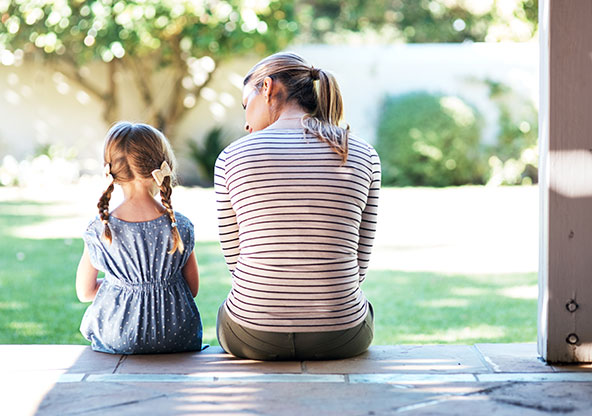Back-to-School Anxiety
By Gabriela Nunez, PsyD, Child Psychologist
Returning to school can be exciting for children, but for others it can be anxiety-provoking. Some nervousness and anxiety are normal because children may not know what to expect. This is especially true for younger children and children in a transitional period. Such transitional periods include entering kindergarten, middle school or high school.
Children may worry about having a new teacher, fitting in, making friends, understanding new learning objectives, and/or having higher demands and expectations as they get older. Anxiety can come in the form of having worry thoughts about school or peer relationships. These worries can manifest into headaches, stomachaches and other physical symptoms (sweaty palms, racing heart, etc.).
Here are some ways you can help your child if they are experiencing back-to-school anxiety:
- Ask your children how they feel about returning to school and listen.
- Avoid being too quick to problem solve or dismiss their emotions.
- Encourage them to face their fears and appease their worries.
- Reassure them they will be successful and to ask you for help when they need it.
- Connect them to helpful adults like their teacher and their school counselor.
- Avoid morning disagreements about going to school.
- Prepare your children to transition back into a routine (sleep hygiene, decreasing screen time, etc.)
- Set expectations regarding school attendance and answer questions they have.
When to be concerned:
- Your child is asking to stay home to avoid school.
- Your child is having learning difficulties.
- Your child is getting bullied or feels unsafe.
- Your child is having daily anxiety for most of the day and has regular physical ailments.
- Your child’s worries are not going away.
- Your child is having a hard time making friends.
What to do next:
- Consult your child’s pediatrician to determine a cause for any physical symptoms outside of anxiety.
- Continue talking to your child about how their day went at school and any concerns they have.
- Create a designated time and approach to having an open and safe place to talk about their daily school problems. For example: Establish a structured family dinner time and eat together, play the high-low game: every member names a high (happy or good moment) in their day and a low (difficult, sad moment).
- Give your child time to decompress from school by sharing a positive bonding moment.
If you child’s pediatrician or school counselor suggests your child needs clinical help, learn more about CHRISTUS Children’s Pediatric Psychology Clinic in San Antonio or find a pediatric psychologist near you.
Psychology Clinic
Learn MoreCHRISTUS Children's - Psychology Clinic
CHRISTUS Children's Psychology Clinic offers specialty programs for behavioral health to children, adolescents, and families in San Antonio.


